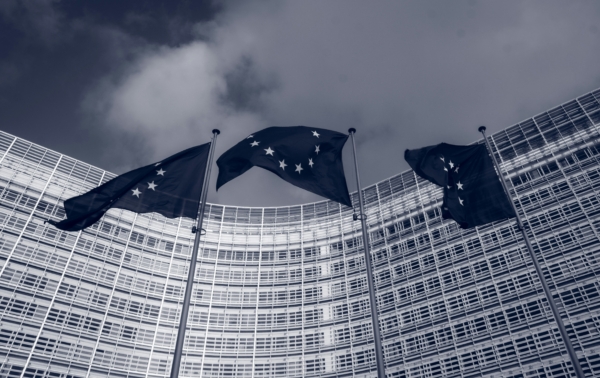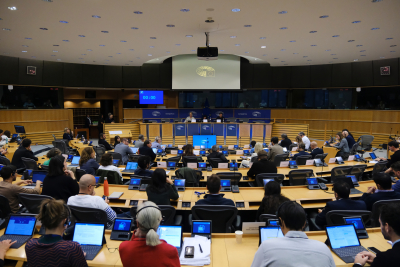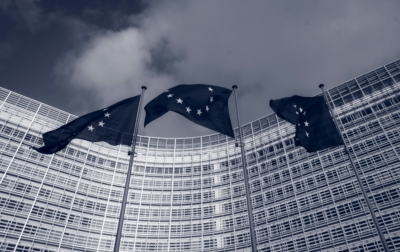The start of a new year is traditionally a time to make good resolutions. At Transparency International EU, we think that it’s high time to give EU staff the same whistleblowing rights as other EU workers.
First, a bit of background. In 2019, the European Union finally adopted a dedicated and comprehensive Directive on Whistleblower Protection. The Directive sets minimum standards for the protection of whistleblowers reporting breaches of EU law in a host of areas such as environmental safety, consumer protection, and financial services. The agreement was supported by a large majority of Member States and MEPs and, when transposed into national law, will afford protections to millions of employees in the public and private sector. Unfortunately, the Directive does not include a key group of employees from its scope: the staff members of the EU institutions, agencies, and bodies.
How is that the same civil servants who drafted the proposal are not protected by it? For primarily two reasons: First, EU staff members occupy a unique place in employment law. The employment rights and obligations of EU staff are governed by the EU Staff Regulation and not national laws. Second, and despite the Parliament rapporteur originally calling for it, the necessary political will was not there in negotiations to include EU staff in the scope.
As of 2014, all EU institutions were required to put in place internal rules and guidelines for the protection of whistleblowers, but the uptake and implementation was very slow. This prompted a European Ombudsman enquiry and recommendations. Following this, in 2016, all institutions had rules in place.
There are two main problems with the aforementioned rules: there is no harmonisation across institutions and many of the standards are below the provisions of the newly-adopted Directive.
Though the institutional whistleblower protections are derived from the same regulation, the individual institutions have the responsibility to lay down the specific rules for these protections. This has resulted in varying standards, with some provisions contradictory to each other. Anonymous reporting is an example of this lack of harmonisation. OLAF, the EU’s anti-fraud agency, and structurally a part of the European Commission, actively encourages citizens to report fraud anonymously on a secured website. The European Commission’s guidelines discourages anonymous reporting and the Parliament’s rules forbid staff to act anonymously. There is also the Parliament’s unique problem of failing to protect accredited parliamentary assistants (APAs) who report fraud and wrong-doing by their own MEP. Extraordinarily, the Parliament’s Secretary General, despite a legal obligation to provide protections, admitted: “Whistleblowing rules are applicable to APAs but the EP cannot provide employment protection, as they are dependent on their individual MEPs.”
Despite the varying rules in place, to a certain extent they all fall below the minimum standards of the Directive. For instance, the Directive protects whistleblowers when, under specific circumstances, they directly disclose wrongdoing publicly. Under the EU Staff Regulation public disclosure is not allowed under any conditions. The Directive’s confidentiality requirements are clearer and the measures to prohibit retaliation against the whistleblower are more robust. The Parliament’s negotiating team for the Directive had red lines on measures that are contained in the Parliament’s own rules, such as on the inclusion of malicious reporting.
As well as reeking of double standards, this divergence has serious consequences. Inadequate rules can inhibit staff from speaking up and reporting wrongdoing. Since the Commission’s Internal rules have entered into force, very few case have been reported, which puts into question the efficacy of the current framework.
Considering the Commission’s track record might be illustrative: OLAF registered four cases of internal whistleblowing concerning EC staff members in 2013, three in 2014, two in 2015, none in 2016, one in 2017 and two in 2018. That’s 12 cases in six years in an organisation of 32,000 employees. The Parliament doesn’t fare any better: There were three whistleblower cases reported in 2016 – all three were accredited assistants – all three were dismissed by their MEP. There were no parliament staff who came forward as whistleblowers in 2017, nor in 2018.
Now it is the perfect opportunity for the EU to offer its own staff the same protections that the Directive grants to other whistleblowers across Europe. Transparency International EU calls on the European institutions to address this situation and take the necessary steps to revise their rules and bring them in line with the new Directive.







